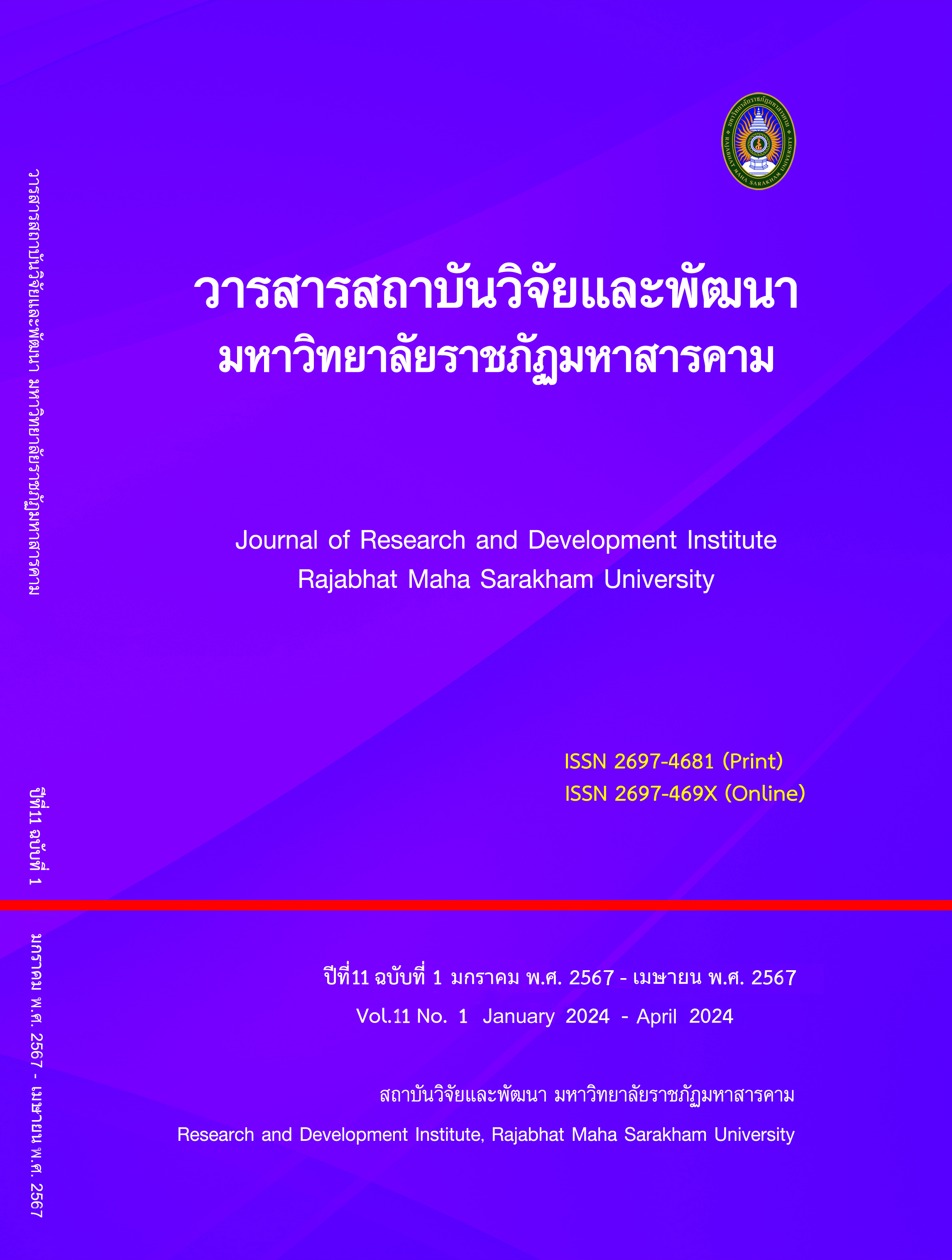The development of the school dropout risk prevention of students by using PDCA cycle of Collages in the affiliation vocational education in Roi Et Province
Keywords:
the affiliation vocational education, development, Student’s Learning SupportAbstract
This research aims to 1) study current condition, the desirable condition and the necessity for the school dropout risk prevention of students by Using PDCA Cycle of colleges in the affiliation vocational education in Roi Et Province. 2) develop of the school dropout risk prevention of students by Using PDCA Cycle of colleges in the affiliation vocational education in Roi Et Province. The sample group used in the research consisted of 32 school administrators and 217 teachers, total 249 people. This was obtained by sample size determination (Krejcie and Morgan). The tools used in the research include the five-rating scale questionnaire (Likert), the semi-structured interview and the evaluation of the possibility. The statistic used in this research was average and standard deviation.
The result found that the current condition for the school dropout risk prevention of students by Using PDCA Cycle of colleges in the affiliation vocational education in Roi Et Province, the overall level was at moderate level. The desirable condition for the school dropout risk prevention of students by Using PDCA Cycle of colleges in the affiliation vocational education in Roi Et Province, the overall level was highest. Ranking in the order of the necessity from high to low as student individual knowledge, student screening, student promotion and development, and student prevention and assistance. The result of the school dropout risk prevention of students by Using PDCA Cycle of colleges in the affiliation vocational education in Roi Et Province found that they were 5 parts and 26 ways
References
Department of Mental Health. (2003). Teacher's manual for student care and support
systems. 3rd printing. Bangkok: Printing House.
Deming in Mycoted. (2004). Plan Do Check Act (PDCA). [online]. Available from : http://www.mycoted.com/creativity/techniques/pdca.php. [accessed 16 June 2022].
Educational Equality Fund Act 2018. (13 May 2018). Royal Gazette. Volume 135,
Chapter 33. Page A.
Khotpim, L (2021). The Development Guidilines for the Student Care and Support System in School Under The Secondary Education Service Area Office 27. For Master Education (Education Administration and Development) Mahasarakham University.
Ministry of Education. (2003). National Education Act of 1999, amended.
(Edition 2) B.E. 2002. Bangkok: Teachers' Council.
Office of Vocational Education Monitoring and Evaluation (2017). [online]. Available from : https://bme.vec.go.th/ [accessed 16 June 2022].
Klinsrisuk. P, (2021). Development the Operational of the Student Care and Support System for School under the Secondary Educational Service Area Office 22 Nakhonphanom Province. For Master Education (Education Administration and Development) Mahasarakham University.
Chuemthong, S. (2019). A study of status and guidelines of student assistant management development of sukkharot school under the secondary educational service area office 18. Master of Education Thesis Field of Study: Educational Administration Graduate School Burapha University.
Vocational Education Act 2008. (26 February 2008). Royal Gazette. Volume 125. Section 43 A. Page 4.
Sukhasawek, V. (2020). The student-assistant system management in college affecting student’s Quality of life under the vocational college in Nakhon Sawan province. Master of Education Thesis Field of Study: Educational Administration Graduate School Chao Phraya University.
Downloads
Published
How to Cite
Issue
Section
License
Copyright (c) 2024 ปิ่นนรา ยลถวิล, ธรินธร นามวรรณ

This work is licensed under a Creative Commons Attribution-NonCommercial-NoDerivatives 4.0 International License.
Articles that are published are copyrighted by the authors of the articles







